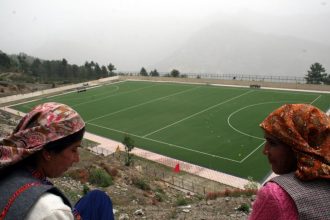Kolkata: Women lynched, sexually exploited and forcibly evicted from their homes after being branded witches. Witch-hunting is not about a stray report tucked away in a corner of the newspaper but an increasingly worrying pan-India trend that specifically targets women in a patriarchal society, say experts.
With reports of witch-hunting coming in from villages and even towns across the country, sociologists, women activists and others believe that it but another form of gender-based violence. And women who stand out from the crowd, either because they have property, are good looking or independent are specifically targeted.
There have been increased instances of single women/widows being branded witches and murdered when they refused sexual overtures of someone dominant in the village or in the family. In some cases, relatives branded them witches to grab their property.
NGOs working in rural areas have found “beauty and wealth” to be the prime reasons behind witch-hunts.
“It is less of superstition and more of a conspiracy, either to grab the property of the woman or to take revenge for unfulfilled sexual intent in the case of younger women,” social activist Shravani told.
Shravani has been working with rural women in what is now Jharkhand for the past 20 years. She said victims in most cases were young, good looking widows or single women/widows who had huge property in their names and were childless.
“Saloni Khujoor of Mandar village, an educated single woman, was branded a witch and killed because society could not tolerate a woman being the heir of her father’s property and people don’t want to see women being self-dependent,” said Shravani.
Several NGOs in Jharkhand said that most cases go unnoticed and unreported as they are hushed up.
Renowned Wiccan priestess Ipshita Roy Chakraverti blamed “vested interests like property, personal interest in the woman” as the reasons for women being branded witches.
“More than 800 women have been killed after they were denounced as witches across the country since 2008. This is the official figure. The actual number may be higher,” Chakraverti told.
In a patriarchal society, an independent single woman is a threat, warranting immediate elimination.
Keeriti Roy, a social worker from West Bengal, said almost all the cases of witch killings in the state had a close connection to property or other vested interests – and that rejection in love was also a reason.
City-based sociologist Bula Bhadra described witch killing as “genderised mass murder”.
“The overall evidence makes plain that the panic of the witch craze is inseparable from the misogynist stigmatisation of women as evil. Women who seemed independent from patriarchal norms have been targeted as witches. Labelling women as witches effectively diverts attention from the daily multifaceted atrocities on women in India,” Bhadra said.
According to the National Crime Records Bureau, 243 women have been killed after being denounced as witches across India in 2011, with Karnataka registering the maximum with 77 cases, followed by Odisha with 41 and Jharkhand with 36. Many other states are also in the list.
G. Vijayan of The Atheist Centre in Andhra Pradesh said settling old scores was a primary reasons for witch-hunting besides land grabbing. Often, there is official neglect.
“In some parts of the Telangana region, when a woman is killed after being branded a witch, a case is not even registered,” he said.
According to All India Democratic Women Association Odisha secretary Pushpa Das, witchcraft is rampant in the state. “In 2012 alone, around 50 such cases came up and most of the victims were single women.”
“The government needs to be proactive. Without the administration coming forward, such killings cannot be prevented,” Shravani said.
– Nirupam Singh (IANS)
The opinions, beliefs and viewpoints expressed by authors, news service providers on this page do not necessarily reflect the opinions, beliefs and viewpoints of Hill Post. Any views or opinions are not intended to malign any religion, ethnic group, club, organization, company, or individual.
Hill Post makes no representations as to the accuracy or completeness of any information on this site page.



